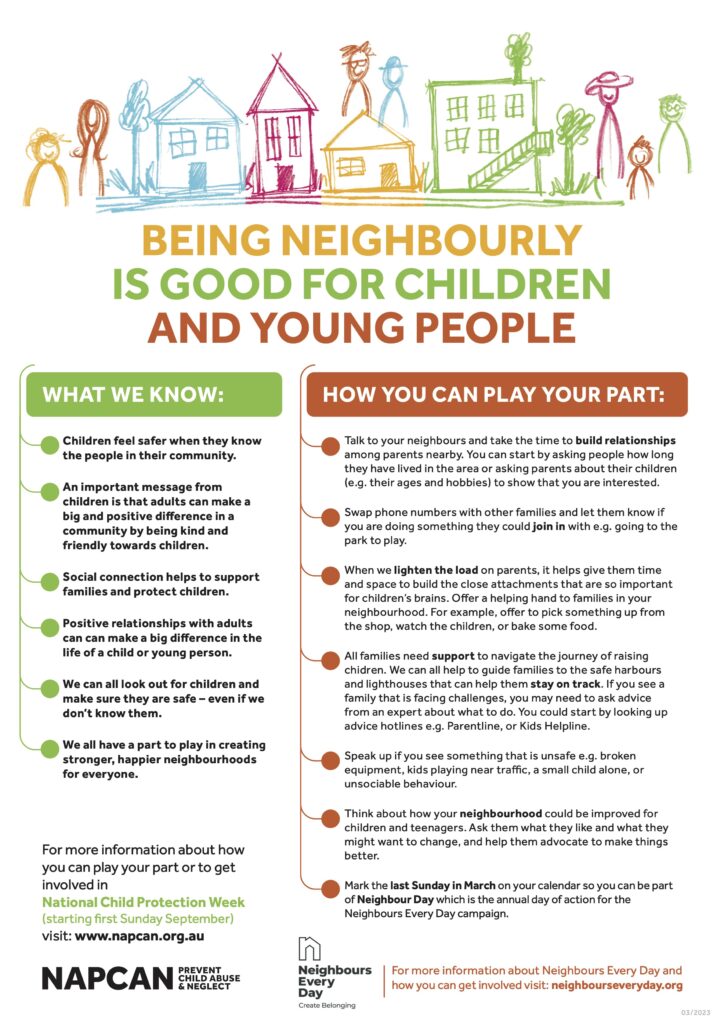Being neighbourly is good for children and young people
BEING NEIGHBOURLY IS GOOD FOR CHILDREN AND YOUNG PEOPLE
WHAT WE KNOW:
-
Children feel safer when they know the people in their community.
-
An important message from children is that adults can make a big and positive difference in a community by being kind and friendly towards children.
-
Social connection helps to support families and protect children.
-
Positive relationships with adults can make a big difference in the life of a child or young person.
-
We can all look out for children and make sure they are safe – even if we don’t know them.
-
We all have a part to play in creating stronger, happier neighbourhoods for everyone.
HOW YOU CAN PLAY YOUR PART:
-
Talk to your neighbours and take the time to build relationships among parents nearby. You can start by asking people how long they have lived in the area or asking parents about their children (e.g. their ages and hobbies) to show that you are interested.
-
Swap phone numbers with other families and let them know if you are doing something they could join in with e.g. going to the park to play.
-
When we lighten the load on parents, it helps give them time and space to build the close attachments that are so important for children’s brains. Offer a helping hand to families in your neighbourhood. For example, offer to pick something up from the shop, watch the children, or bake some food.
-
All families need support to navigate the journey of raising children. We can all help to guide families to the safe harbours and lighthouses that can help them on track. If you see a family that is facing challenges, you may need to ask advice from an expert about what to do. You could start by looking up advice hotlines e.g. Parentline, or Kids Helpline.
-
Speak up if you see something that is unsafe e.g. broken equipment, kids playing near traffic, a small child alone, or unsociable behaviour.
-
Think about how your neighbourhood could be improved for children and teenagers. Ask them what they like and what they might want to change, and help them advocate to make things better
-
Mark the last Sunday in March on your calendar so you can be part of Neighbour Day which is the annual day of action for the Neighbours Every Day campaign.


